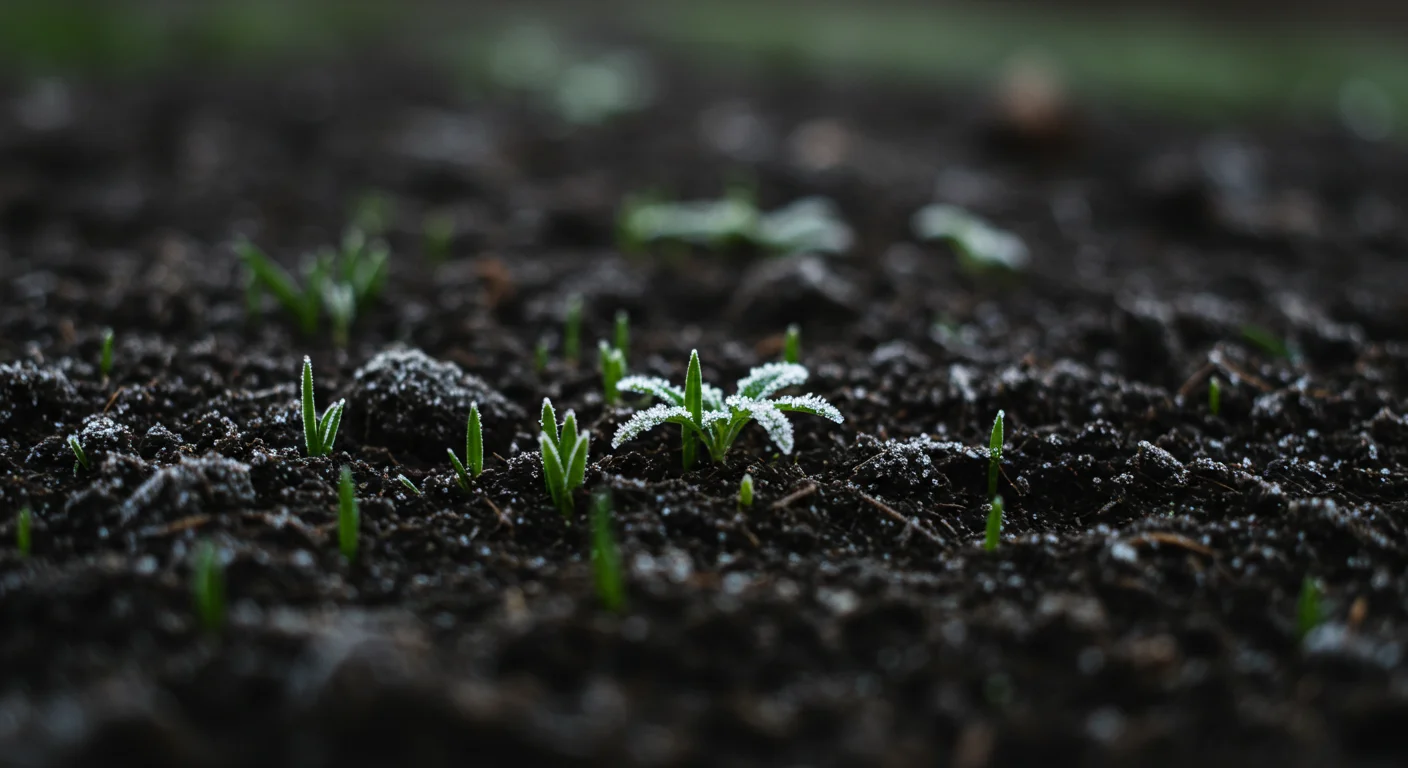Best Soil for Winter Plants in Georgia
The days may be shorter and the temperatures milder, but winter in Georgia doesn’t mean your garden has to go dormant! With the right planning and soil preparation, you can enjoy a vibrant garden filled with winter greens, colorful blooms, and hardy shrubs. The secret to success? It’s all about the soil. Choosing the right soil is vital to supporting your winter garden, protecting plants from the challenges of the season, and ensuring thriving growth. This blog post will guide you on how to make smart soil choices and give your winter garden a solid start.
Understanding Georgia’s Winter Soil Conditions
Unlike many other regions, Georgia experiences relatively mild winters. However, that doesn’t mean your soil gets a free pass! Our winter conditions can be tricky and can sometimes present challenges.
-
Mild Temperatures and Occasional Freezes: Georgia winters usually hover around the 40-50°F range, but we can experience sporadic freezes. This means your soil needs to be able to protect the plant’s roots during colder snaps.
-
Increased Rainfall and Potential Waterlogging: Winter brings increased rainfall, which can lead to waterlogged soil. This is a major issue as overly saturated soil prevents roots from getting the oxygen they need, leading to root rot.
-
Reduced Sunlight: The winter sun is weaker and the days shorter, so your soil needs to be able to provide plants with the nutrients they need despite less sunlight.
These conditions make soil preparation crucial. You need soil that can manage moisture effectively, insulate against cold snaps, and provide essential nutrients for the slower growth cycles of winter plants.
Key Qualities of the Best Soil for Winter Plants
The best soil for winter plants in Georgia balances drainage, moisture retention, and nutrient availability. Here are the qualities to look for:
-
Excellent Drainage:
-
Why It’s Crucial: Poor drainage leads to waterlogged soil, suffocating plant roots and causing them to rot. This is particularly important in the wet winter months.
-
How to Test: Dig a hole about 12 inches deep and fill it with water. If the water takes more than 6-8 hours to drain, you need to improve your soil’s drainage.
-
Tips to Improve: Amend heavy clay soil with coarse sand, perlite, or compost. Raised beds or containers can also improve drainage.
-
-
Good Moisture Retention:
-
Why It’s Important: While drainage is crucial, soil still needs to retain enough moisture to prevent plant roots from drying out.
-
How to Balance: Look for a balance between drainage and moisture retention. You don’t want your soil to be soggy, but it should retain enough moisture that your plants can survive if there isn’t rain or if the soil dries out.
-
Beneficial Amendments: Incorporate organic matter like compost or coco coir to help the soil retain moisture without becoming waterlogged.
-
-
Rich in Organic Matter:
-
Why It’s Essential: Organic matter improves soil structure, enhances drainage, and provides essential nutrients.
-
How to Incorporate: Add generous amounts of compost, well-rotted manure, or leaf mold to your garden beds.
-
-
Slightly Acidic pH:
-
Why It’s Important: Many winter plants prefer a slightly acidic soil pH, usually between 6.0-6.5. This allows them to absorb essential nutrients more efficiently.
-
How to Test: Use a soil testing kit (available at most garden centers) to measure your soil’s pH.
-
How to Amend: If your soil is too alkaline, amend it with pine straw, sulfur, or acidic compost.
-
-
Appropriate Texture:
-
Ideal Textures: Loamy soil – a mix of sand, silt, and clay – is ideal for most plants. However, you may need to adjust the texture for specific plants.
-
Identifying Texture: If your soil is heavy clay, you can loosen it with sand and compost. If your soil is too sandy, add compost and other organic material to help it retain moisture.
-
Specific Soil Recommendations for Winter Plants in Georgia
Here’s how to tailor your soil for different types of winter plants:
-
Vegetable Gardens:
-
Winter Greens (Spinach, Kale, Lettuce): These crops prefer well-drained soil rich in organic matter. Amend with plenty of compost and ensure the soil is loose. A slightly acidic pH (6.0-6.5) is ideal.
-
Root Vegetables (Carrots, Turnips, Radishes): These need loose, well-drained soil that isn’t compacted. Amend with sand and compost to prevent root deformities.
-
Raised Beds and Containers: For raised beds, consider a mix of equal parts topsoil, compost, and peat moss or coco coir. For containers, use a quality potting mix with added perlite for drainage.
-
-
Flowering Plants:
-
Winter-Blooming Flowers (Pansies, Violas, Hellebores): These plants prefer well-drained, slightly acidic soil with plenty of organic matter. Amend the soil with compost or leaf mold.
-
Bulbs (Tulips, Daffodils): These need well-drained soil that won’t become waterlogged. A sandy loam soil mix is best for bulbs. Add some bone meal at planting for nutrients.
-
Perennials: Prepare the soil with organic matter before the winter. The plants will go dormant, and when spring comes around, they will have all the nutrients necessary to come back to life.
-
-
Shrubs and Trees:
-
Evergreens and Winter Shrubs (Camellias, Hollies): These plants prefer acidic soil. Amend with pine straw or acidic compost. Ensure good drainage to prevent root rot.
-
New Plantings: When planting new trees or shrubs, dig a wide hole and mix the removed soil with compost before backfilling. Amend the soil with plenty of organic matter.
-
Soil Amendments to Improve Winter Soil
Here are some of the best amendments for improving your soil:
-
Compost:
-
Benefits: Adds organic matter, improves drainage, retains moisture, and provides essential nutrients.
-
How to Incorporate: Mix compost thoroughly into your garden beds before planting. Topdress the soil with a layer of compost as well. Use both store-bought and homemade options.
-
-
Perlite/Vermiculite:
-
Benefits: Improves drainage, aeration, and water retention in container gardens.
-
Ideal Uses: Mix into potting soil to prevent compaction and improve drainage.
-
-
Coco Coir/Peat Moss:
-
Benefits: Increases moisture retention in sandy soils.
-
Pros and Cons: Coco coir is an eco-friendly alternative to peat moss.
-
-
Pine Straw/Bark:
-
Benefits: Adds acidity, improves soil texture, and acts as a mulch.
-
Applications: Use as a mulch around acid-loving plants like azaleas, camellias, and blueberries.
-
Tips for Winter Soil Care
-
Mulching:
-
Why it’s Important: Mulch insulates the soil, regulates soil temperature, retains moisture, and suppresses weeds.
-
Best Mulch Options: Use pine straw, shredded leaves, or bark mulch around your plants to help conserve moisture and protect from temperature fluctuations.
-
-
Soil Testing:
-
How To: Regularly test your soil’s pH and nutrient levels before planting and as needed throughout the season.
-
When to Amend: Amend your soil as needed based on the results of your soil test.
-
-
Avoid Compaction:
-
How to Avoid: Avoid walking on wet soil, as this can lead to compaction.
-
Use of Pathways: Use pathways or lay boards on the soil for walking to prevent soil compaction.
-
-
Winter Cover Crops:
-
Benefits: Winter cover crops like rye, clover, or hairy vetch can improve soil structure, add organic matter, and prevent erosion.
-
Best Options: Plant cover crops in the fall, and cut them down before planting in the spring.
-
Conclusion
Choosing the right soil is the first step to a thriving winter garden in Georgia. By focusing on drainage, moisture retention, organic matter, and slightly acidic soil pH, you’ll be well-prepared to support your winter greens, blooms, and shrubs. Take the time to prepare your soil, and you’ll be rewarded with a beautiful and productive winter garden.
Call to Action
Have you had success with winter gardening in Georgia? What are your go-to soil tips? Share your thoughts and questions in the comments below! Don’t forget to share this post with your fellow Georgia gardeners.
Read More :
Best breakfast for Dancers and Athletes
The Sweet Spot: Finding the Best Amaretto Baking Chips for Delicious Treats
latest video
news via inbox
Nulla turp dis cursus. Integer liberos euismod pretium faucibua




